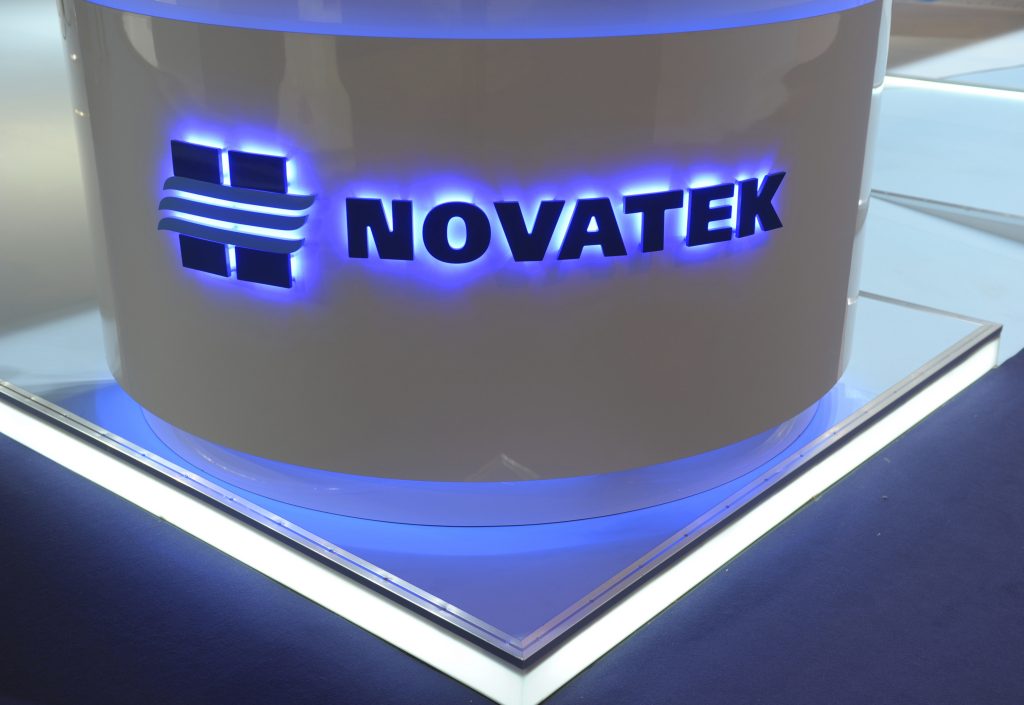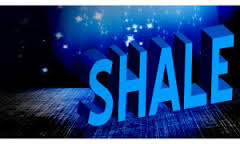23 September 2014, Lagos – The greatest challenge facing the delivery of power to Nigerians is inadequate gas supply to fire the gas-powered turbines for power generation.
Gas inadequacy to the local market stemmed from long years of non-investment in domestic gas supply by the international oil companies (IOCs) and the local operators due to the low price, which does not guarantee adequate returns on investment.

Consequently, operators focused on the export market, supplying the liquefied natural gas (LNG) plants at international market price that is far above the domestic price.
Shortage of gas to the power plants has, no doubt, has made mockery of the power privatisation programme of the federal government as all the targeted deliverables by both the government and the new private investors, in terms of level of generation and revenue projections were not achieved.
Despite the much-orchestrated power reform, with its widespread local and global attention, the government has continued to celebrate a mere peak of 4,500 megawatts of electricity, a feat that was first achieved since 2012, two years before the conclusion of the reform.
The Chairman of the Nigerian Electricity Regulatory Commission (NERC), Dr. Sam Amadi had told THISDAY that the power reform targeted a generation of 7,000 mw by the first quarter of 2014 but gas shortage made this target unrealisable.
“We built a MYTO (Multi-Year Tariff Order) model even in a not-very-good scenario because if we have used good scenario, we would have projected 16,000 megawatts. This would have been the best case scenario and it would have been a realistic benchmarking if gas is available,” he said.
“Before now, the power reform was moving fast but gas was lagging behind. Today, you see a mismatch. You have a much-more developed power sector and a very under-developed gas sector, both in terms of policy and management framework. Initially, gas people were not thinking about power; all along, Liquefied Natural Gas (LNG) is the business of gas. So, they did not bother about domestic supply,” he added.
Pricing Review
A recent landmark development in the gas industry to the credit of this present administration was the upward review of the domestic gas price.
When this administration came on board, the price of gas sold to the domestic market was $0.5 per thousand standard cubic feet (mscf), while the export market was over $3 and this disparity in pricing justified investors’ preference for the export market.
Before the deliberate review in pricing, the government had attempted to compel investors to make deliberate gas supply commitments to the domestic through Domestic Supply Obligations (DSOs) forced down on these investors.
But the option of increasing the domestic price proved to be a more potent weapon to woo investors to commit shareholders’ fund in gas infrastructure to supply the domestic market.
This administration more recently, carried out further review of the price to $2.5 per mscf as part of what it called a “pragmatic and creative” short term approach to address challenges in the power sector, particularly the issue of adequate gas supply to thermal generation plants across the country.
Unveiling the new measures, the Minister of Petroleum Resources, Mrs. Diezani Alison-Madueke, disclosed that NERC had approved a new gas-to-power pricing benchmark from $1.50 per mcf of gas to $2.50/mcf and $0.80/mcf as transportation costs for new capacity.
According to her, the benchmark, which reflects realistic gas market parity will equally rise with the United States annual inflation statistics.
Expectations of Investors
Though investors are excited about the new increase in the price of domestic gas, describing it as an improvement that would encourage investment in gas-to-power, they however, insist that the government should hands off the regulation of gas price and allow the market forces of demand and supply to drive the price mechanism.
Speaking to THISDAY in a recent interview, the Managing Director of Total Upstream Companies in Nigeria, Mrs. Elisabeth Proust said the recent improvement in domestic gas price would not make big domestic gas projects economic.
“To get the economy of such project, we need to have a good price. The improvement in gas price is good. But we can say that it cannot provide the economy of such pipeline project. I hope that we will achieve a better price so that we can have the economy of such investment,” she added.
Proust said for huge investment in gigantic projects to be economic, the price of domestic gas should be increased from $2.5 to $7.
The Chief Executive Officer of Frontier Oil Limited, operator of Uquo Marginal Field, first marginal gas field in Nigeria, Mr. Dada Thomas, also allied his views with Proust’s submission, saying the country should adopt Korean or United States model where the price of domestic is around $7.
“I fully agree with her. The current increase from $1.5 to $2.5 per thousand standard cubic feet is very good but we are not yet near where we ought to be. We are still well below world market price. What it means for us is that it is encouraging that slowly, instead of digging ourselves into 50 feet grave, may be, we are in a 23 feet grave and with time, things will change that will allow our project to become totally economic. We need to get gas pricing domestically as attractive as may be, Henry Hub in the United States; I am not saying as in Korea because in Korea, that is the highest gas price paid in the entire world. Henry Hub is about $5, $6 or $7 right now in the United States and that is in spite of Shale gas. We need to get gas pricing moving in that region in Nigeria for you to have absolutely no reason to beg anybody to invest in gas,” he explained.
“This current price of $2.5 per thousand standard cubic feet is nice but is not going to have people screaming to invest in gas,” Thomas, whose company also operates Uquo Gas Processing Facility, first gas-to-power project by independent indigenous partners in sub-saharan Africa, added.
Thomas noted that infrastructure for distributing gas and transmitting gas is also an impediment, adding that it is expensive to build pipelines.
He said the fiscal regime for gas in Nigeria was under threat, stressing that to grow the gas industry, investors should be incentivised.
“Instead, in the proposed Petroleum Industry Bill (PIB), they propose to increase gas taxation from 30 per cent Company Income Tax (CITA) to 80 per cent. How does that incentivise an industry? So, you are going to nearly triple the tax and yet you think people and going to run and put their money in that. Secondly, royalty on gas is steep. Why do you want to put additional royalty on top of the proposed 80 per cent taxation? You have royalties on gas. Those policies do not seem sensible to me. To me what I would expect is to incentivise people to bring their money and put it into gas, which is a long term investment. It is not like oil where people expect to make their returns in two years. Gas is a long term investment,” he added.
Thomas also stated that when the Nigeria Liquefied Natural Gas (LNG) plant was being built, the international investors involved in the project were given massive tax holidays.
According to him, Chevron also got tax break when it was building the Escravos project in Delta State.
“Why is it now that indigenous operators like us, who are going to provide all your new gas in the next five years – ourself, Niger Delta, Seplat – those are the new gas that will come on stream in this country, not from the IOCs. Why are we facing penalties rather than incentives? If you could incentivise IOCs for Bonny LNG; for Chevron’s Escravos, why are you not incentivising us, your home-grown players? It does not make sense to me,” Thomas added
Impact on Power Generation/Tariff
Speaking on the gas pricing regimes, the Co-founder and Managing Director of Falcon Petroleum Limited, Prof. Joseph C. Ezigbo told THISDAY that the pricing regimes had historically been designed more to ease customers into gas utilisation, without giving adequate consideration to the private sector investors who are expected to provide the enabling infrastructure to make the gas available in readily usable form.
“This is a legacy issue from the days of government dominance in infrastructure development projects. We should remember that so far, the about 187 trillion cubic feet of Natural Gas that is so much talked about is Associated Gas (AG) which is discovered in the search for or production of Crude Oil. We can barely make boast of active search for and development of our Non-Associated Gas (NAG), reserves which are estimated to be in the region of about 600 Trillion Cubic Feet (TCF). Our gas reserves are believed to be higher than our oil reserves, yes; however we will not get the full benefit of this if beyond eliminating flares, we do not invest in aggregating our NAG resources into usable forms for the overall benefit of the nation’s economy,” he explained.
Ezigbo noted that appropriate pricing, effective laws and specific regulations guiding investments in the gas subsector are imperatives to making investments in NAG development a reality.
Despite the position of gas suppliers to the new price increase, there is no doubt that the measure will incentivise operators to invest in gas to supply the local market.
Increasing gas supply to the domestic market will make the product available for power generation, thereby boosting electricity supply in the country.
However, the recent increase in gas price has the potential to trigger an increase in electricity tariff as the generation companies will have to pay more on gas.
Consequently, the distribution companies will also have to pay more to buy power from the generation companies and this increase will ultimately be passed on to the final consumers.
A former aide to a one-time Minister of Gas, Mr. Dan Kunle had told THISDAY that the recent upward review of the price of gas would likely see Nigerians pay more for electricity services.
Kunle said the price of electricity tariff might rise from the current rate of N14 per kilowatt hour (kh) to N40/kh for domestic consumers and even more for industrial users who now pay about N25/kh in the next review of the Multi Year Tariff Order (MYTO) by NERC.
NERC reviews its MYTO framework twice in a year; December and June, putting into consideration changes in certain components like inflationary and exchange rates, cost of gas as well as the Aggregate Technical Commercial and Collection (ATC&C) loss figures of the distribution companies, amongst others.
“If care is not taken the reflective cost of the increase per kilowatt hour could be N40; which domestic consumer will pay that in this country. If what we are paying currently for gas is $1.50 and consumers are paying about N14 and N25 depending on their classes, by the time it is escalated to $3.30 what will be the price that domestic consumer will pay? Will the distributors be asked to pass the cost or will they be asked to take the cost and sell electricity at the old price?” Kunle asked.
He charged NERC to tell Nigerians how it would transparently pass the rising cost across the value-chain, saying: “I haven’t seen the arithmetic but if what we are paying with the current price of gas is anything to consider, what will be the price that domestic consumer will pay with the escalation of the price of gas.”
– Ejiofor Alike, This Day



